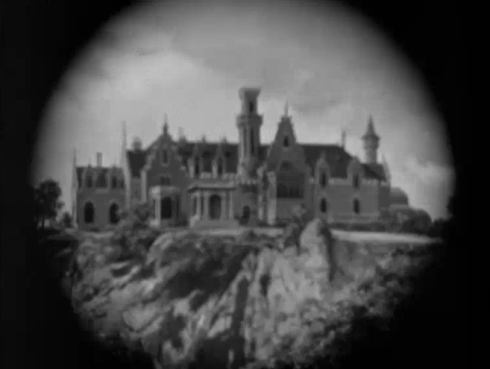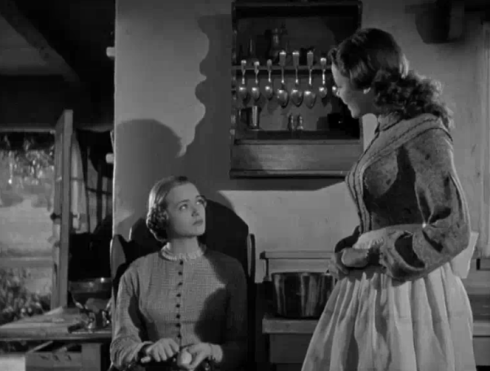
PSYCHO 1960
Alfred Hitchcock’s Psycho (1960) is the psycho-sexual thriller that yanked back the shower curtain on our deepest fears and cinema’s darkest secrets and showed us what real terror looks like. It’s the film that peered through the peephole and exposed the dark heart of the genre.
A film that didn’t just change horror, but rewired the DNA of cinema itself. Adapted from Robert Bloch’s 1959 novel, which itself drew chilling inspiration from the real-life crimes of Ed Gein, a Wisconsin serial killer whose crimes were truly disturbing. Psycho takes the seed of true crime and grows it into a nightmarish meditation on identity, repression, the monstrous potential, and the unsettling truth that real darkness can hide just beneath the surface of everyday life, tucked away within the people we’d usually never think twice about.
Part of Psycho’s enduring power lies in what it withholds—the violence is never explicit, but rather implied, allowing our minds to fill in the blanks with something far more unsettling. It’s a testament to Hitchcock’s mastery that, despite the lack of graphic imagery, the film remains so psychologically intense that many still find it too frightening to watch.
Janet Leigh’s Marion Crane, the Hitchcock blonde who didn’t make it out of the film, is our way into the story. On the run after a really bad decision, she starts out as our anchor, our heroine—until Hitchcock does something unheard of. He pulls the rug out from under us, shatters and subverts all narrative expectations with the infamous shower scene, a sequence so meticulously constructed (78 camera setups, 52 cuts in 45 seconds) that it became an instant cinematic legend that even now we can’t stop talking about it.
Psycho kicks off with Marion Crane making a desperate grab for a new life, stealing $40,000 and hitting the road. A rain-soaked detour leads her to the lonely Bates Motel, where she meets the awkward but oddly charming Norman Bates, who loves glasses of milk and stuffing things that were once breathing.
Norman Bates is a lonely caretaker running a rundown motel, totally warped and pretty much broken by his domineering mother. Hitchcock takes those two intersecting characters and, with Anthony Perkins in the role as Norman, gives us something unforgettable. Through his mesmerizing performance, Perkins brings Norman to life as both deeply sympathetic and seriously one of the film’s and historically, cinema’s most enduring and unsettling figures. A young man whose mind is so fractured that you’re never sure if he’s the victim, the villain, or somehow both at once. Norman Bates is not just a monster; he has become one of the first truly unflinching American psychos and anti-heroes, and you can’t help but be drawn in by how human he really is on the surface.
After a tense dinner and a fateful shower, Marion vanishes, leaving her sister, boyfriend, and a persistent private detective to unravel what happened. As they dig deeper, the secrets of the Bates house come spilling out, revealing a shocking truth about Norman and his “mother” that redefines the meaning of horror.
Janet Leigh brings real vulnerability to Marion, while Vera Miles is all grit and determination as her sister Lila—she’s not letting anything go unsolved. Then there’s John Gavin as Sam Loomis, who’s basically the poster boy for stubborn, all-American macho (and honestly, sometimes he’s about as flexible as a brick wall). Martin Balsam’s detective Arbogast rounds things out with his dogged persistence. Together, this cast grounds the film’s surreal terror in raw, relatable humanity. When Marion vanishes without a trace, Lila, Sam, and Arbogast follow her trail to the Bates Motel. There, a watchful house on the hill hints at secrets far darker than they ever imagined. They uncover the chilling truth behind Marion’s disappearance and the twisted mystery of her tragic fate.
Cinematographer John L. Russell’s stark black-and-white visuals are more than an aesthetic choice—they’re a psychological landscape, channeling German Expressionism and film noir to mirror the splintered landscape of Norman’s identity and the film’s themes of duality and concealment. Shadows slice across faces, mirrors double and distort, and the Bates house looms like a Gothic specter over the isolated Motel, every frame charged with dread and ambiguity.
Bernard Herrmann’s score is the film’s nervous system: those shrieking, stabbing strings in the shower scene are as iconic as the images themselves, turning the amplifier up on the violence and anxiety to an almost unbearable pitch. The music’s relentless tension is inseparable from the film’s atmosphere, setting a new standard for how sound and image can conspire to unsettle our nerves.
Psycho didn’t just push the boundaries of violence—a violence rendered through Hitchcock’s art of suggestion and sexuality on screen—it obliterated them, introducing the world to the slasher film and forever altering the way filmmakers approached suspense, character, and narrative structure. It was the birth of the modern American horror genre.
Hitchcock’s masterpiece is more than the sum of its shocks; it’s a study in the darkness that can fester beneath the most ordinary facades, a film that forces us to confront the monsters within and leaves us, decades later, wary of shower curtains and gives every lonely roadside motel a sinister edge and certainly a fear of All-American males with boyish good looks who might just have their mummified mother’s body eternally presiding over the shadows, in the fruit cellar.

THE BIRDS 1963
Alfred Hitchcock’s The Birds (1963) is a film where the ordinary turns apocalyptic, and at its center is Tippi Hedren’s Melanie Daniels—a woman whose arrival in the sleepy coastal town of Bodega Bay seems to unleash not just a flock of birds, but the full, terrifying force of female primacy. Melanie is no shrinking violet; she’s glamorous, independent, and unapologetically assertive, a socialite who crosses boundaries and upends the careful order of the Brenner family. Her presence is magnetic and disruptive, and as she steps into this insular community, the natural world itself seems to recoil and revolt.
The film opens with playful flirtation in a San Francisco pet shop, but as Melanie follows Mitch Brenner (Rod Taylor) to Bodega Bay, the tone shifts. What begins as a mischievous romantic pursuit quickly spirals into chaos when the birds—first a lone gull, then an unstoppable swarm—begin to attack. The violence escalates: children are beset at a birthday party, the town is terrorized, and the Brenner home becomes a fortress under siege. Hitchcock’s mastery is evident in every frame—the famous schoolyard scene, crows gathering with mathematical menace behind Melanie; the relentless assault in the attic, where she is reduced from poised outsider to battered survivor.
But beneath the surface, The Birds is a study in gendered power and social anxiety. Melanie’s arrival disrupts the fragile balance of the Brenner household: Lydia Brenner (Jessica Tandy), the possessive mother, sees her as a threat to her bond with Mitch; Annie Hayworth (Suzanne Pleshette), the schoolteacher and Mitch’s former lover, is collateral damage in the struggle for his attention. (It’s very hard for me to see Annie (or Bob Newhart’s Emily Hartley) lying face down with her beautiful eyes pecked out!) As critics and scholars have noted, the birds themselves become avatars of repressed female energy, latent sexuality, and the chaos that erupts when the established order is challenged.
Melanie’s very presence—her boldness, her beauty, her refusal to be cowed—seems to summon the avian apocalypse, as if the town (and nature itself) cannot contain the force she represents. The film never offers a tidy explanation for the attacks, leaving us to grapple with the possibility that the horror is a response to the threat of female autonomy and desire.
The birds, as related to the Harpies of Greek myth, can be seen as expressions pointing to a psychoanalytic and mythological interpretation of Hitchcock’s The Birds. According to Horowitz, the birds in the film can be seen as symbolic manifestations of the Harpies from Greek mythology: female, bird-like creatures associated with sudden violence, punishment, and the embodiment of destructive feminine energy.
The relentless bird attacks are not just random acts of nature, but are deeply connected to the psychological dynamics in the film, specifically, the jealousy and repressed rage of Lydia Brenner, Mitch’s mother. Lydia is threatened by Melanie Daniels’ arrival and her potential to disrupt the family structure. The Harpies, as mythic figures, were known for “snatching” away and exacting retribution, often representing uncontrollable forces of female anger and vengeance. In the context of the film, the birds become an outward expression of Lydia’s internal turmoil and possessiveness, as well as broader anxieties about female power and autonomy. Horowitz situates the bird attacks as both a mythic and psychological phenomenon, linked to the Harpies’ role as agents of chaos and punishment, and to Lydia’s own emotional state, making the violence in The Birds a metaphor for the eruption of suppressed feminine power and resentment within the narrative.
Hitchcock’s technical innovation is everywhere: the seamless blend of live and mechanical birds, the absence of a traditional musical score replaced by electronic soundscapes and silence, the use of long takes and tracking shots to build suspense. The result is a film that feels both immediate and surreal, a waking nightmare where the familiar becomes uncanny and the safe becomes dangerous and lethal.
The Birds stands as a landmark in cinematic history, not just for its groundbreaking special effects and nerve-shredding suspense, but for its willingness to probe the psychological and social undercurrents of fear.
It helped birth the “nature attacks” subgenre, influencing everything from Jaws to Arachnophobia, but its true legacy lies in its ambiguity and its refusal to offer easy answers. The terror, like Melanie herself, is both alluring and unknowable—a force that cannot be domesticated or explained away.
In the end, as the battered survivors drive out of Bodega Bay, flanked by thousands of silent, watchful birds, we are left with a vision of power—feminine, natural, and utterly ungovernable—waiting just beyond the edge of our ordered lives. The Birds is not just a tale of nature gone mad; it is a meditation on the dangers and desires that simmer beneath the surface, and a reminder that what we fear most may be the very thing we cannot control.
#113 down, 37 to go! Your EverLovin’ Joey formally & affectionately known as MonsterGirl!



























































